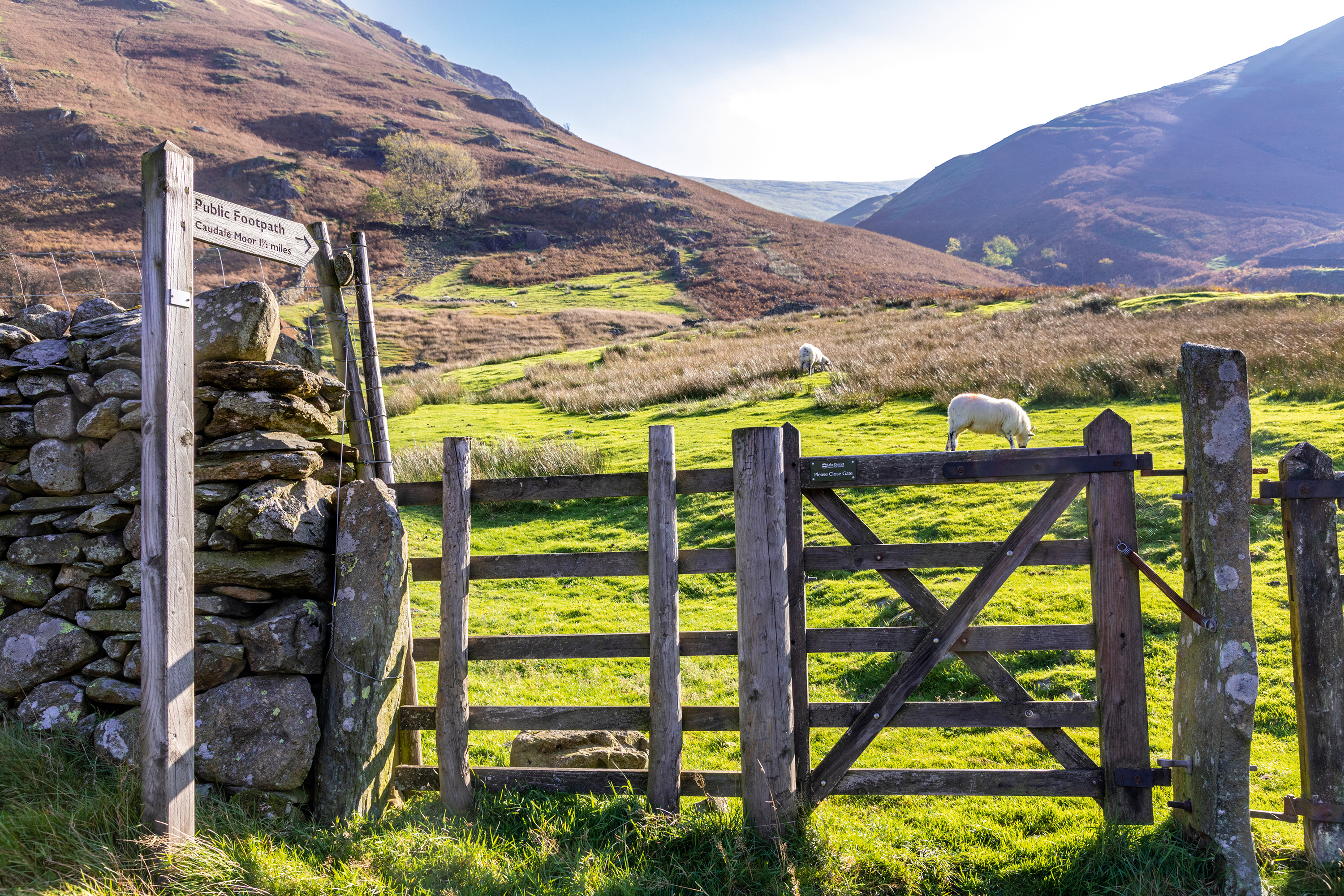What is the Future of the Countryside?
Clive Aslet is surprisingly optimistic about how the British countryside in the 21st century fare in the future


We live in exciting times. We are remaking the British countryside. Many country people, on reading these words, will reach for their Confucius: exciting times can be a curse. We cannot, however, avoid them. Change is inevitable. We had better make the best of it. Bee orchids are on the march. Their exquisite pink flowers, once confined to the south of England, are now colonising the rest of the country, taking advantage of the gaps in other vegetation caused by hot summers.
As editor of Country Life, I joined the hundreds of journalists who covered the 1997 Earth Summit in Kyoto. This being Japan, heating and beverage machines were switched off during the last, all-night session, as the bargaining should have stopped the previous day. It was well into the next morning before the protocol was signed. We blinked into the new day, believing that something momentous had been achieved?something that would affect a remote contingency to do with rainforests and coral reefs on an epic time span. Less than a decade on, the predictions that scientists were making then seem to be visible in the British countryside.
Not so long ago, English wine used to be on a par with Dr Johnson's dog walking on its hind legs: remarkable for being made at all, rather than made well. Last month, however, Denbies Vineyard, a bit of the Napa Valley which has landed implausibly outside the Surrey commuter town of Dorking, has (deservedly) won a gold medal for its Champagne-style Greenfields Sparkling Cuvée 2003 in the International Wine and Spirit Competition. Something is afoot, even if we cannot know exactly what stirs or where that stirring will end. If the melting of polar ice caps diverts the Gulf Stream, Britain will not become Toujours Provence. In the short term, however, we can expect more hot summers like the present one. Beech woods will become vulnerable. Trees generally are suffering more stresses than ever before, as new parasites add to the effects of drought. Tourism could revive depressed seaside towns, if those towns raise their game and the British rediscover the joys of this country's beaches.
I remember the shock of visiting Italy for the first time in the 1970s and seeing cornfields strawberry stained with red poppies blowing in their thousands. Any wild poppy was a rarity in Britain. Now that British farming has extensified, poppies are painting our own hillsides, too. Our flora will change with the climate and different agricultural practices, but not all for the worse. Earlier this year, a major report produced jointly by the Botanical Society of the British Isles and the charity Plantlife, Making it Count for People and Plants, showed that although 16% of species are in decline, another 18% are doing better than before. It is the same with wildlife.
Fewer ring ouzels, more little egrets, which first bred here in 1996. Already the skies around London are green with parakeets, although no one quite knows how they got there. Numbers are increasing at a rate of 30% a year, according to a study from Oxford University.
Not everything is beyond human control. Country Life's poll of its Power 100 (the most influential figures in rural life) showed that, after climate change, they regard housing as the greatest threat to the countryside. We are now said to require five million new homes by the year 2026. Logically, some of it should be provided in a new city the size of Milton Keynes, planned on more sustainable lines (fewer roundabouts, more self-sustaining neighbourhoods).
Radical green politics ought to force the rebuilding of post-industrial disasters such as Stoke-on-Trent?towns whose traditional industry has long since gone overseas, and which will not be revived if development leeches into the countryside. The market town, in which most human needs can be met within walking distance, should become the model for development.
Sign up for the Country Life Newsletter
Exquisite houses, the beauty of Nature, and how to get the most from your life, straight to your inbox.
Will any of these things happen? Only if the Government wills the money for infrastructure. If not, house builders will continue in their attempt to tack a few dozen houses onto every village and a few hundred onto every market town in England. Hampshire, Kent, Cambridge do not sheathe your swords.
Unnecessary car travel could come to suffer the opprobrium now directed at smoking in public places in California. Already, the Government talks about road pricing. Policy wonks from the right advocate making the cost of fuel reflect the total cost to the environment. Rural life will become even more expensive. The idea of scattering new development throughout the countryside, rather than concentrating it in towns, will come to seem grotesquely profligate. There will be a strong incentive to develop alternative fuels and techno-logies. The countryside will reap benefit from growing them.
Farming has already started to look up in recent months, partly because of the projected demand from bio-ethanol plants. Whether this will be the panacea that some farmers hope is open to doubt. China contains 20% of the world's population, but owns only 10% of its croplands. Only a small upturn in the economy would suck in all the available food surpluses from around the world. This will be a harsher planet. More deserts, more flooding, more displaced, hungry populations these will be the results of climate change. It is possible that science will come to the rescue and make agriculture more productive: objections to GM crops will fade into insignificance.
But agriculture may be near the limit of its capacity. Set-aside will seem like the dream of an extravagant past. Some valleys will disappear under reservoirs. Statues will be built to the conservationists who fought to prevent rural Britain from being put under concrete in the early 21st century.
Who will live in the countryside of the future? Mostly people for whom it is a lifestyle choice. There will be more than the average number of elderly people, few agricultural workers, but plenty of individuals who can run their lives through broadband technologies. It will be the salvation of village life. More people will be around during the day. Among them will be some with the knowledge and passion to observe the habits of the green parakeet.
Country Life is unlike any other magazine: the only glossy weekly on the newsstand and the only magazine that has been guest-edited by HRH The King not once, but twice. It is a celebration of modern rural life and all its diverse joys and pleasures — that was first published in Queen Victoria's Diamond Jubilee year. Our eclectic mixture of witty and informative content — from the most up-to-date property news and commentary and a coveted glimpse inside some of the UK's best houses and gardens, to gardening, the arts and interior design, written by experts in their field — still cannot be found in print or online, anywhere else.
-
 Six rural properties with space, charm and endless views, as seen in Country Life
Six rural properties with space, charm and endless views, as seen in Country LifeWe take a look at some of the best houses to come to the market via Country Life in the past week.
By Toby Keel
-
 Exploring the countryside is essential for our wellbeing, but Right to Roam is going backwards
Exploring the countryside is essential for our wellbeing, but Right to Roam is going backwardsCampaigners in England often point to Scotland as an example of how brilliantly Right to Roam works, but it's not all it's cracked up to be, says Patrick Galbraith.
By Patrick Galbraith